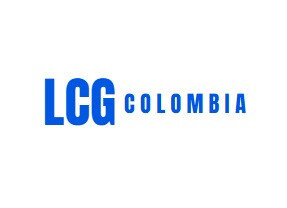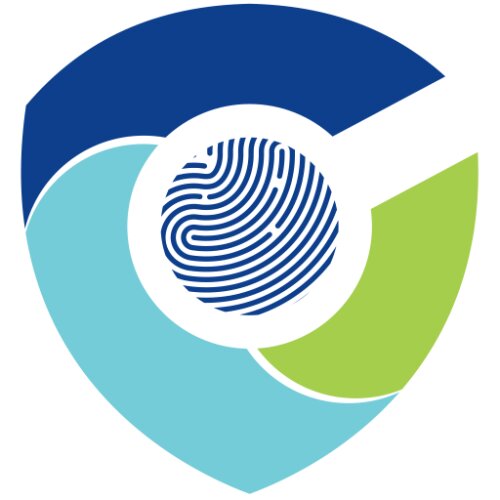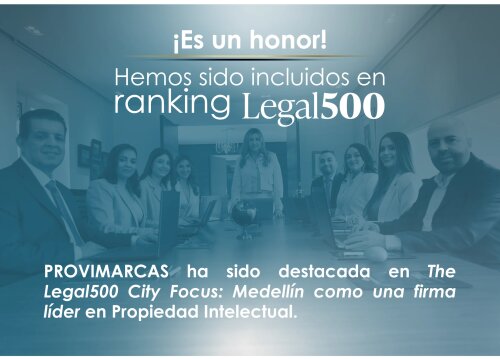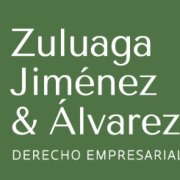Best Art & Cultural Property Law Lawyers in Bogota
Share your needs with us, get contacted by law firms.
Free. Takes 2 min.
List of the best lawyers in Bogota, Colombia
About Art & Cultural Property Law in Bogota, Colombia
Art & Cultural Property Law in Bogota is a specialized field that governs the creation, ownership, transfer, protection, and restitution of works of art and items considered part of Colombia’s cultural heritage. These laws ensure the safeguarding of cultural assets, regulate transactions in the art market, and help prevent illicit trafficking. Given Bogota’s status as the capital and a center of the arts, understanding this legal landscape is crucial for artists, collectors, museums, galleries, and anyone involved with cultural property in the city.
Why You May Need a Lawyer
There are various situations where professional legal guidance is essential:
- Buying or selling artworks or cultural objects and ensuring their provenance is clear
- Facing disputes over the ownership or authenticity of a piece
- Engaging in import or export of art, especially if it qualifies as cultural property
- Navigating restitution claims for looted, stolen, or illegally exported works
- Dealing with museum loans, exhibitions, and related contracts
- Protecting artists’ rights, including moral and economic rights, under Colombian law
- Receiving government resolutions affecting private collections or cultural sites
- Understanding local tax implications regarding the art market
Local Laws Overview
In Bogota, Art & Cultural Property Law is shaped by both national legislation and local regulations designed to protect Colombia’s rich cultural heritage. The core legal framework includes Law 397 of 1997 (the General Law of Culture), which outlines the identification, protection, and management of cultural assets. Other relevant statutes are Law 1185 of 2008 (amending Law 397), dealing with movable and immovable cultural property, and Law 63 of 1986, which implements UNESCO conventions about illicit trade and restitution. The Ministry of Culture, the Colombian Institute of Anthropology and History (ICANH), and the District Institute of Cultural Heritage (IDPC) in Bogota oversee compliance, permitting, and conservation efforts. Exporting or importing art objects classified as cultural property without proper permits is strictly prohibited, with penalties for violations. Private art transactions may also be subject to due diligence requirements to ensure the legal origin and ownership of items.
Frequently Asked Questions
What qualifies as cultural property in Bogota?
Cultural property includes tangible items, such as artworks, archaeological objects, documents, monuments, and historic artifacts that are recognized as having cultural, artistic, or historical significance for the country. These can be either movable or immovable and are typically registered with relevant authorities.
Can I buy or sell cultural property freely in Bogota?
While art that is not officially declared as cultural property can be traded freely, any item considered cultural heritage is subject to strict regulatory oversight. Transactions involving registered cultural property require authorization and special procedures.
How can I check if an artwork is classified as cultural property?
You can verify the status of an object with the Ministry of Culture, the District Institute of Cultural Heritage in Bogota, or the National Register of Cultural Property. These bodies maintain updated lists and can confirm whether an item is regulated.
Can I export a piece of art from Bogota?
Exporting artworks that are listed as cultural property requires special permits from the Ministry of Culture. Unauthorized export is illegal and can result in seizure and penalties. Items not classified as cultural property can generally be exported with standard customs procedures.
What happens if cultural property is stolen or illegally exported?
Stolen or illegally exported cultural property is subject to restitution under Colombian law and international agreements. Legal action can be initiated to recover such items, and receiving or trading in them is a criminal offense.
What legal rights do artists have over their works in Bogota?
Artists in Colombia have moral and economic rights over their creations, including the right to be credited, to object to modifications, and to benefit economically from reproductions or sales. These rights are protected under national copyright law.
Are there tax considerations when buying or selling art?
Yes. Art sales can trigger value-added tax (VAT) and, in certain cases, income tax on capital gains. Tax obligations depend on the nature of the work, its classification, and the parties involved, so professional advice is often necessary.
How can museums or galleries protect themselves legally?
Museums and galleries should use well-drafted loan agreements, insurance policies, and provenance checks to mitigate legal risk. Legal counsel can help navigate regulatory requirements and manage potential disputes with artists or patrons.
What are the consequences of violating cultural heritage laws?
Violations can lead to fines, confiscation of the cultural property, criminal charges, and even imprisonment. Individuals and institutions are both subject to these penalties if found culpable.
Who enforces cultural property laws in Bogota?
The Ministry of Culture, District Institute of Cultural Heritage (IDPC), law enforcement agencies, and, in some cases, the judicial authorities are responsible for enforcing laws related to cultural property in the city.
Additional Resources
If you need information or guidance, consider these key resources:
- Ministry of Culture (Ministerio de Cultura) - Regulates and oversees cultural heritage matters nationally
- District Institute of Cultural Heritage (Instituto Distrital de Patrimonio Cultural - IDPC) - Manages heritage issues in Bogota
- Colombian Institute of Anthropology and History (ICANH) - Handles archaeological heritage and research
- National Police’s Heritage Group - Investigates illegal trafficking of cultural property
- Local law firms specializing in art, culture, and heritage law
- Bar associations and legal aid organizations with expertise in this field
Next Steps
If you believe you are dealing with an issue related to art or cultural property law in Bogota, consider these steps:
- Gather all documentation related to your artwork, transaction, or legal concern
- Check the cultural status of the property through official registries
- Contact a legal professional with experience in art and cultural property matters
- Consult with relevant governmental or cultural bodies for permits or guidance
- If involved in a dispute, do not negotiate or transfer property until you receive legal advice
- Stay informed about local regulations, especially if you are purchasing, selling, or moving art across borders
Early legal intervention can protect your interests and help you navigate the complex regulatory environment surrounding art and cultural heritage in Bogota.
Lawzana helps you find the best lawyers and law firms in Bogota through a curated and pre-screened list of qualified legal professionals. Our platform offers rankings and detailed profiles of attorneys and law firms, allowing you to compare based on practice areas, including Art & Cultural Property Law, experience, and client feedback.
Each profile includes a description of the firm's areas of practice, client reviews, team members and partners, year of establishment, spoken languages, office locations, contact information, social media presence, and any published articles or resources. Most firms on our platform speak English and are experienced in both local and international legal matters.
Get a quote from top-rated law firms in Bogota, Colombia — quickly, securely, and without unnecessary hassle.
Disclaimer:
The information provided on this page is for general informational purposes only and does not constitute legal advice. While we strive to ensure the accuracy and relevance of the content, legal information may change over time, and interpretations of the law can vary. You should always consult with a qualified legal professional for advice specific to your situation.
We disclaim all liability for actions taken or not taken based on the content of this page. If you believe any information is incorrect or outdated, please contact us, and we will review and update it where appropriate.













